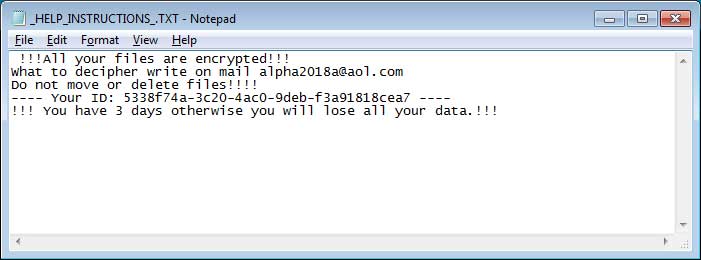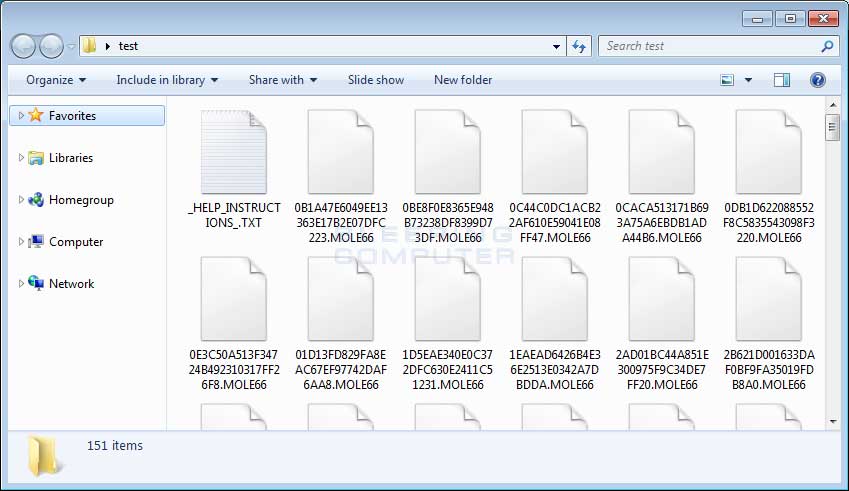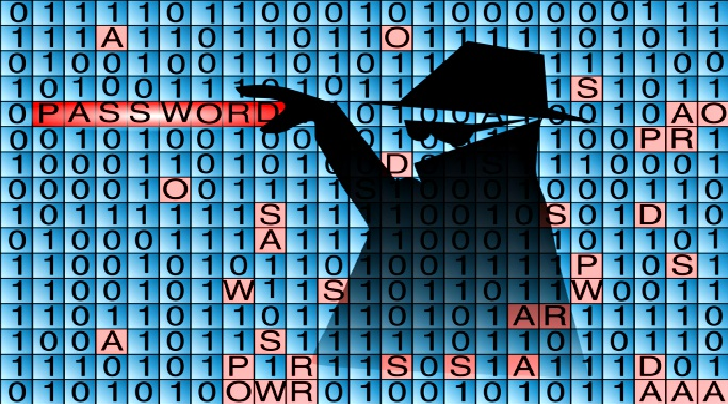Today MalwareHunterTeam discovered a new variant of the Cryptomix Ransomware that appends the .MOLE66 extension to encrypted files, changes the contact email, and slightly changes the ransom note’s name. In the past, we used to see new Cryptomix variants a few times a month, but this time it has been almost 2 months since the previous System variant was released.
In this article I will provide a brief summary of any changes that have occurred in this new variant. As we are always looking for weaknesses, if you are a victim of this variant and decide to pay the ransom, please send us the decryptor so we can take a look at it. You can also discuss or receive support for Cryptomix ransomware infections in our dedicated Cryptomix Help & Support Topic.
Changes in the MOLE66 Cryptomix Ransomware Variant
While the encryption methods stay the same in this variant, there have been some slight differences. The ransom note is has been slightly changed to _HELP_INSTRUCTIONS_.TXT and now uses the alpha2018a@aol.com email for a victim to contact for payment information.

The next noticeable change is the extension appended to encrypted files. With this version, when a file is encrypted by the ransomware, it will modify the filename and then append the .MOLE66 extension to encrypted file’s name. For example, a test file encrypted by this variant has an encrypted file name of 0D0A516824060636C21EC8BC280FEA12.MOLE66.

Unfortunately, at this time the ransomware cannot be decrypted for free. As this is just a cursory analysis of this new variant, if anything else is discovered, we will be sure to update this article.
How to protect yourself from the MOLE66 CryptoMix Ransomware
In order to protect yourself from ransomware, it is important that you use good computing habits and security software. First and foremost, you should always have a reliable and tested backup of your data that can be restored in the case of an emergency, such as a ransomware attack.
You should also have security software that incorporates behavioral detections to combat ransomware and not just signature detections or heuristics. For example, Emsisoft Anti-Malware and Malwarebytes Anti-Malware both contain behavioral detection that can prevent many, if not most, ransomware infections from encrypting a computer.
Last, but not least, make sure you practice the following security habits, which in many cases are the most important steps of all:
- Backup, Backup, Backup!
- Do not open attachments if you do not know who sent them.
- Do not open attachments until you confirm that the person actually sent you them,
- Scan attachments with tools like VirusTotal.
- Make sure all Windows updates are installed as soon as they come out! Also make sure you update all programs, especially Java, Flash, and Adobe Reader. Older programs contain security vulnerabilities that are commonly exploited by malware distributors. Therefore it is important to keep them updated.
- Make sure you use have some sort of security software installed that uses behavioral detections or white list technology. White listing can be a pain to train, but if your willing to stock with it, could have the biggest payoffs.
- Use hard passwords and never reuse the same password at multiple sites.
For a complete guide on ransomware protection, you visit our How to Protect and Harden a Computer against Ransomware article.
To read the original article:
https://www.bleepingcomputer.com/news/security/mole66-cryptomix-ransomware-variant-released/
